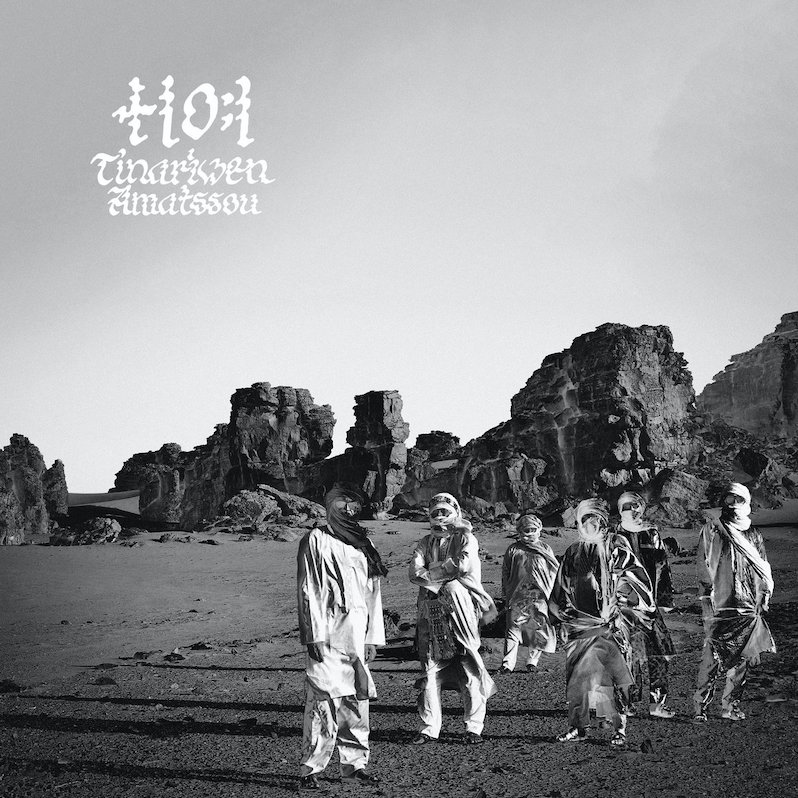Salif Keita : So Kono

To have Malian virtuoso Salif Keita and his closest confidants tell it, So Kono is an album that probably should not have happened. His interest in music, and prohibition to pursue it in his home country because of prejudices about his being born albino, pushed him away from his royal birthright in Africa long ago, but fortunately for the rest of the world these didn’t stop him from a career as the “golden voice” of the continent. He’s talked about using acoustic guitar as an early building block in his songwriting and bandleading, and how awkward it would be to record for mass consumption what he considered just a composing tool. He also had announced his retirement from recording in 2018 anyway, marked by a concert in Mali and the release of Un Autre Blanc. But “never say never” as they say—and be thankful they do, especially in the face of what turn out to be such transportive results.
Keita participated in Afrobeat in the 1960s and 1970s that felt like a calmer alternative to Fela Kuti’s revolutionary funk, followed that with slickly produced Afro-pop in the 1980s and 1990s, then downshifted to bluesier work in the 21st century. There is nothing slick about So Kono, a title translating to “in the room” in the Mandinka language. Beckoned to play a Kyoto music festival in the spring of 2023, Keita had a literal moment of Zen in a Japanese temple. In discussions with the faithful bandmates and adoring industry friends who surrounded him in that moment, he found a certain peace within himself to tackle what for him had felt uncomfortable for so long. This is his first purely acoustic album, more than half of which was recorded in isolation in his Ritz-Carlton Kyoto hotel room.
So Kono is also as close to a solo album as you might get from Keita. There’s minimally invasive support from his Kyoto trio members Badié Tounkara on ngoni and Mamadou Koné on percussion, with cello and female vocalists underpinning him on other tracks recorded in Mali and France the following year. It’s not a greatest hits album or career retrospective, but Keita revisits his distant and recent past throughout the LP’s nine tracks. “Kanté Manfila,“ sprightly despite its minor key, name-checks the Guinean guitarist he played with early in his career in Les Ambassadeurs, while “Soundiata” hearkens back to both a song title and compilation album from Rail Band, a griot ensemble sponsored by the Mali government that was Keita’s first big break as lead singer. He also tones down to a glowering warble “Laban” and “Tu vas me manquer,” two glittery songs from 2005’s M’Bemba.
These sounds are simultaneously spare and complex, letting you embrace them mournfully or vibrantly as needed. Salif Keita leads by example, closing out the album on “Proud”: “They’ll see Africans, they’ll see fear/They’ll see albinos, they’ll see fear/They’ll see difference, they’ll see fear … And what I am, I’m proud.” Even absent translations of its lyrics, So Kono clearly holds music that’s reverent and deeply personal to him. Throughout, we’re led to make temporal connections to the work of Nusrat Fateh Ali Khan and Youssou N’Dour, focusing on arrangements unvarnished by big bands and studios as well as Keita’s voice, grown weary from decades of effort representing Mali to the rest of the globe. I won’t sit here and claim to understand everything being said on this album, let alone across a broad career of internationally recognized work. But in a time when many of the world’s citizens seek to escape the world itself—on some level, if even briefly—Salif Keita just sounds like he’ll take us to places where we want to be.
Label: Nø Førmat
Year: 2025
Similar Albums:
Adam Blyweiss is associate editor of Treble. A graphic designer and design teacher by trade, Adam has written about music since his 1990s college days and been published at MXDWN and e|i magazine. Based in Philadelphia, Adam has also DJ’d for terrestrial and streaming radio from WXPN and WKDU.




